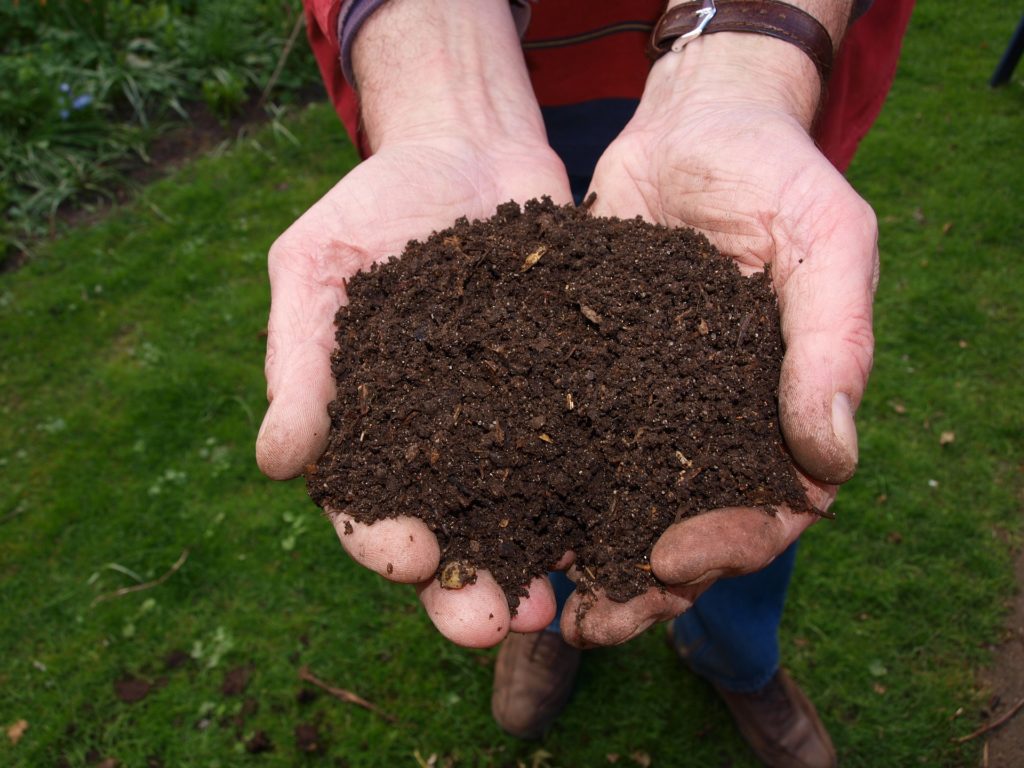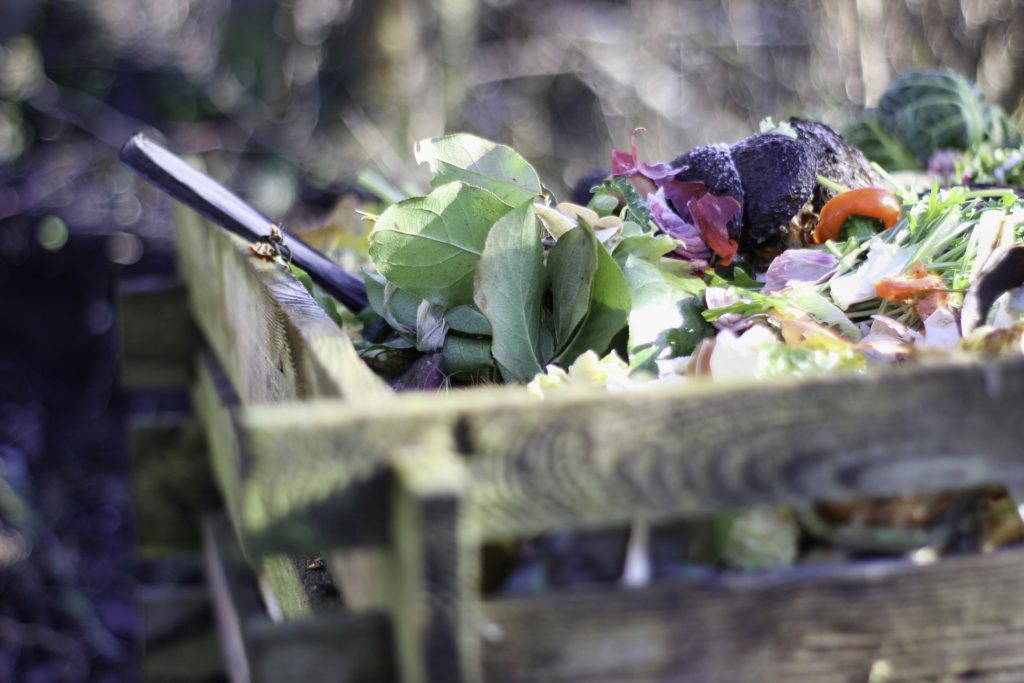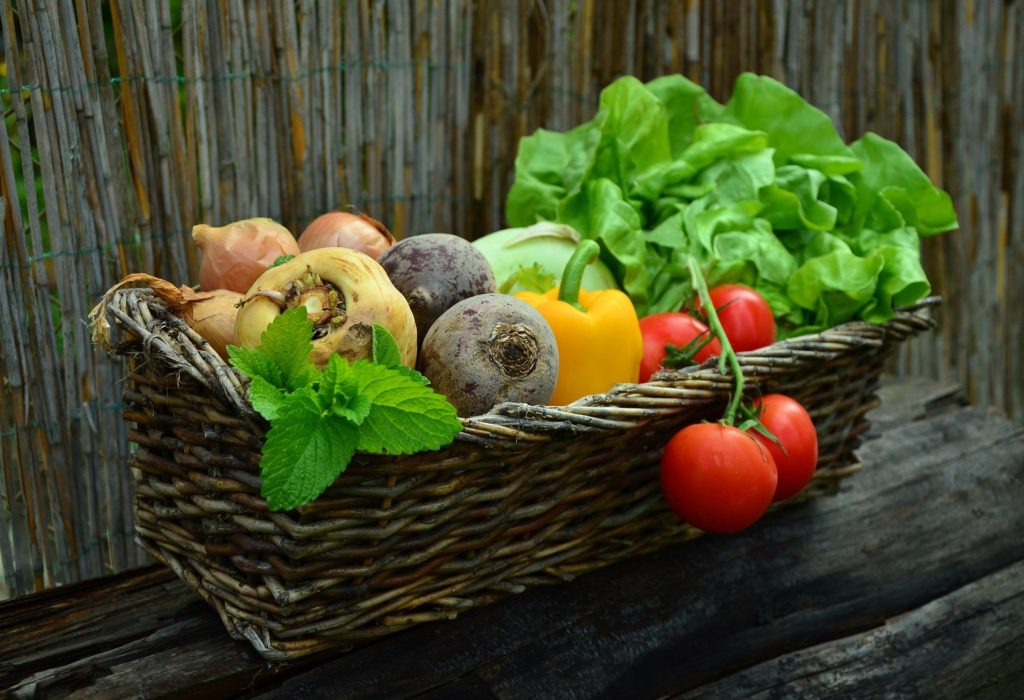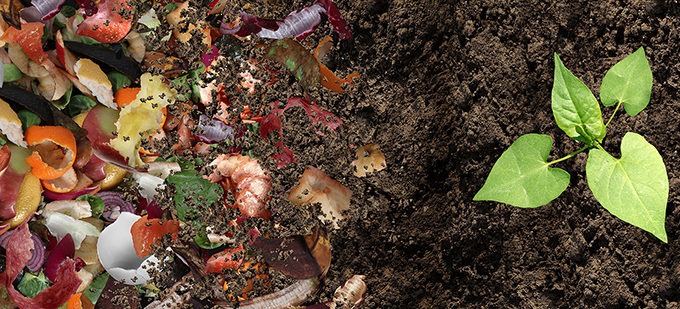From spoiled to soil: composting 101
You might not think twice about tossing vegie scraps in the bin, but food waste adds to global warming more than you may realise. Luckily, there’s a solution: composting.
Australia currently generates millions of tonnes of food waste every year. Such a huge amount of organically-active material buried anaerobically (without air) in landfills causes over three percent of Australia’s total greenhouse gas emissions annually through the production of methane gas, which has 25 times the global warming potential of C02.
With available areas for landfill slowly diminishing, the need to establish sustainable alternatives to landfill is becoming even more crucial. One easy, rewarding and low-cost solution is composting, which diverts food waste from landfills and returns nutrients and carbon back to the soil. In fact, it’s estimated that about half of the waste in a household rubbish bin could be composted at home.

The benefits of composting
“Most people think that organic waste such as fruit and vegetable peelings or garden waste is harmless and will naturally decompose in landfills over time,” says Eric Love, Chairman of the Centre for Organic Research & Education (CORE). This not-for-profit industry association has a mission to promote the beneficial reuse of recovered organic resources.
“It’s unfortunately not true. Each time we throw away organics such as food scraps and garden waste in the rubbish bin, we’re contributing to climate alteration.”
Composting food waste doesn’t just increase carbon in the soil, reducing the effects of climate change. Using compost on your garden can lessen the need for water by an average of 30 percent. Plus it greatly improves soil quality to help you grow beautiful fruit, vegies and herbs. Returning nutrients to the soil also feeds the diverse life within it. Friendly bacteria, fungi, insects and worms in compost support better soil health and plant growth. Compost can also suppress plant diseases and pests, reducing the need for chemicals.

What can I add to my compost bin?
Vegie and fruit scraps, vegetable oil, prunings and lawn clippings, tea bags, coffee grounds, vacuum dust, shredded paper and cardboard, used potting mix, egg shells and flowers.
What should I not add to my compost bin?
Meat and bones, dairy products, diseased plants, metals, plastic and glass, animal poo, fat, magazines, large branches, weeds that have seeds or underground stems, sawdust from treated timber and synthetic chemicals.
What about worm farms?
You can add food waste to worm farms. But avoid citrus, spicy food, garlic, onions, meat, dairy and processed foods such as bread and pasta.
For more on composting dos and don’ts, check out this article.

Composting: the key to urban farming
More Australians than ever are growing their own food at home and rediscovering the joys of backyard gardening. So if you’re thinking about joining their ranks, composting is a great place to start, setting you up for your own little richly fertile urban farm.
Urban farming can create more sustainable living in local communities by providing fresh, nutritious, hyperlocal produce. And by using compost as a natural fertiliser, you’ll be nurturing the soil while eliminating the need for synthetic chemicals. This ensures you get high-quality, clean, sustainably-grown food.
“Farming is not restricted to rural areas, and you don’t need to be a farmer to grow fresh food,” says Love. “We can have smaller but nevertheless productive farms in urban areas and enjoy fresh produce right at our doorsteps.
“Every backyard at home is a potential productive urban farm. We can all enjoy healthy, locally grown food and close the loop on food waste by turning it into compost.”









